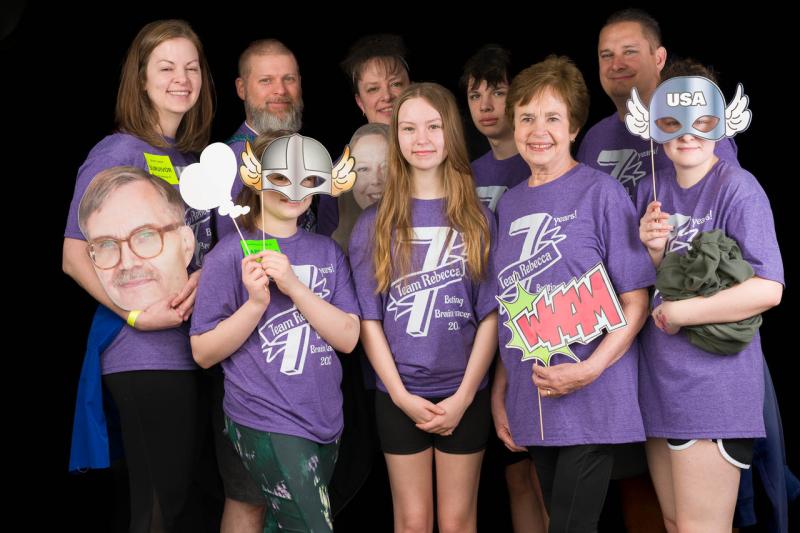
Rebecca Richmond’s journey with brain cancer began in April 2016. As a normally healthy individual and mother to a three-year-old daughter, she was alarmed when she experienced eye twitching and numbness across her body. A visit to her primary care doctor suggested a vitamin deficiency, but a follow-up MRI later that month revealed a more serious diagnosis: a brain tumor. A biopsy confirmed it was a grade 2 oligodendroglioma. At the time, Rebecca served as the director of pharmacy at her hospital, where her team offered crucial support and recommended that she consult with Duke University.
Coincidentally, the 60 Minutes special on the Preston Robert Tisch Brain Tumor Center (PRTBTC) had recently aired, highlighting the groundbreaking work being done at Duke. Inspired, Rebecca sent her information to the PRTBTC and was surprised when, within 24 hours, Henry Friedman, MD, personally called her, reassuring her with the words, “We’re here to help you, we’re going to help you.” Soon after, Allan Friedman, MD, reviewed her MRI and she immediately expressed her desire for him to be her neurosurgeon. They scheduled her craniotomy during that same conversation, and in June 2016, Dr. Allan Friedman successfully performed the surgery.
Following her surgery, Rebecca’s care team recommended a surveillance plan rather than immediate chemotherapy or radiation, given the surgery’s success. Grateful for the exceptional care she had received, Rebecca transitioned to a new role at Duke as a pharmacy manager in September 2017. She maintained her follow-up appointments without incident for several years.
In December 2020, Duke neurooncologist Katy Peters, MD, presented her with an opportunity to participate in the clinical trial for vorasidenib, an investigational drug for low-grade gliomas. Rebecca quickly agreed, seeing the trial as a chance to prolong her disease-free period. Reflecting on her decision, she shared, “If this was my shot at increasing the disease-free time, this was the opportunity I needed to take … I trusted Dr. Peters, I trusted Duke, and I knew they wouldn’t put me in a situation that would deteriorate my health.”
Rebecca began the clinical trial with monthly doctor visits, lab work, MRI scans every three months, and neurocognitive exams. Over time, the frequency of her visits was reduced to every two months, with MRI scans every six months. After the trial was unblinded, meaning the researchers and participants were informed about whether they had been receiving the active drug or a placebo, Dr. Peters informed Rebecca that she had been on active therapy the entire time, and the drug had since gained FDA approval.
A long-standing supporter of the Preston Robert Tisch Brain Tumor Center, Rebecca and her family participate annually in the Angels Among Us event. Known as "Team Rebecca," they proudly wear purple shirts and rally together to support brain tumor research and awareness.
Reflecting on her journey, Rebecca expressed gratitude: “I’ve been so blessed. My MRIs have been stable, the area of concern on my MRI appears to be shrinking, and I’ve had zero negative effects from this trial. My life is going on, and that’s the best I could ask for.” She continued, “This is a very challenging diagnosis, and I’m one of the lucky ones. It’s the excellent care at Duke—from when both Friedmans took the time to personally call me, to the continuous support and treatment—that means so much to me. I just can’t speak highly enough about the opportunities Duke provides for its patients and the level of care they offer.”
Rebecca’s story is one of resilience, hope, and the profound impact of compassionate and expert medical care.